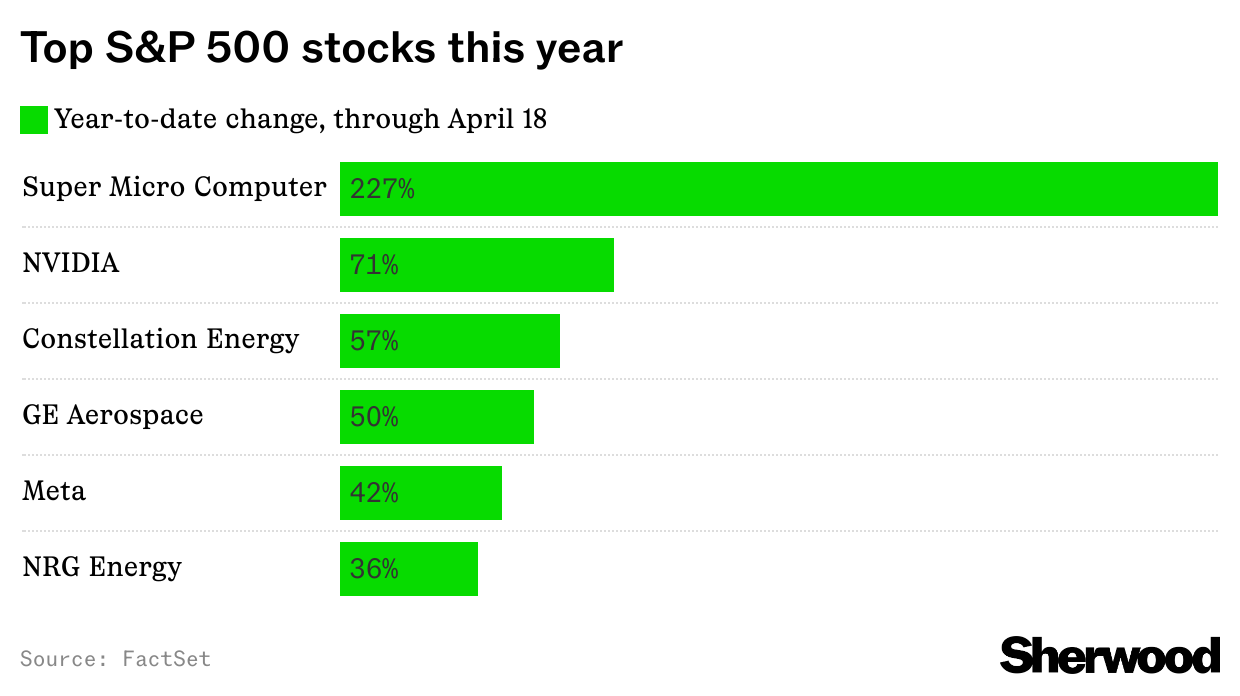Hey Snackers,
Beware the Netflix side tab: a Canadian accountant was ordered to repay $2.7K to her former employer after productivity-tracking software determined she wasn’t working the number of hours she logged. That Excel sheet isn’t fooling anyone.
The S&P 500 had its worst day in over a month yesterday after hawkish comments from St. Louis Fed President James Bullard and news that US retail sales fell sharply in December. On the plus side: investors got more evidence that inflation’s slowing.
GenAI
AI-art lawsuits could set copyright precedents for titans like Microsoft and Stability AI
The AI suits are coming… Generative AI has blown up in the past year, with tools like ChatGPT and Stable Diffusion garnering mainstream headlines. Image generators including OpenAI’s DALL-E and Stability AI’s Stable Diffusion “create” images from text prompts (think: “a neon banana in the style of Vincent van Gogh”). But those AI-art tools are trained on billions of images scraped from the internet, many of which are copyrighted by the artists who created them.
- Artists sue: This week a group of artists filed a class-action suit against AI-art generators Stability AI, Midjourney, and DeviantArt, arguing that the companies “violated the rights of millions of artists” and profited by using copyrighted images to train their AI models. A similar suit was recently filed against Microsoft, GitHub, and OpenAI.
- Companies too: Also this week, Getty Images sued Stability AI, alleging it “unlawfully copied and processed millions of images protected by copyright” without a Getty license. A study conducted last year concluded that a sizable chunk of Stable Diffusion's data was likely pulled from Getty’s site (partly evidenced by the tool's habit of including the Getty watermark).
It’s a legal gray area… So far there aren’t clear rules around the use of genAI because it’s such a new thing. But it’s growing at lightning speed and is top of mind for companies and artists. In September, Getty Images banned the inclusion of AI-generated images in its database over copyright concerns. But Adobe announced that it would sell images generated by AI tools like DALL-E and Stable Diffusion (so did Shutterstock).
It’s a cart-before-horse scenario… Determining whether AI-art tools violate copyright law could be thorny, but the outcomes of lawsuits will likely set precedents for how to handle such cases. Artists have already started sharing tools for determining whether their work was scraped by AI. Meanwhile, corporations are putting the AI cart before the horse: this week Microsoft announced plans to integrate OpenAI’s generative AI tech into all its products.
Pop
Party City files for bankruptcy as celebratory spend cools, highlighting the chilly side of seasonal retail
Alexa, play “When the Party’s Over”... Halloween icon Party City has filed for bankruptcy. As America’s largest party retailer with 850 stores, PC is a go-to for themed birthdays and last-minute costumes. But the festive chain has racked up $1.7B+ in debt, as everything from higher costs to helium shortages hit its bottom line. It’s lost money for the past three fiscal years, and said it was on track to lose nearly $200M this year. Now:
- Exchanged: Party City shares have dropped 90%+ over the past year, and last month it said it was at risk of delisting from the New York Stock Exchange because its stock was too low.
- Spirited away: PC’s struggled to compete with its meme-able rival Spirit Halloween, which uses vacant storefronts to launch its seasonal pop-up shops.
Spooky szn… Party City is only the latest retail casualty, as historically high inflation and rising interest rates scare off consumers. This month, debt-laden Bed Bath & Beyond said it could also file for Chapter 11 as losses pile up. Meanwhile, US retail sales continued to fall last month, posting their biggest monthly drop since 2021 as shoppers cut back on holiday splurges.
Being a retailer is hard… but being a seasonal retailer is even harder. Online shopping is already crushing brick-and-mortar stores. Seasonal businesses that rely on a few holidays for most of their sales have it even tougher. As Americans spend more on essentials like groceries and rent, there’s less cash for balloons and Wednesday Addams wigs. Retailers without regular cash flow could find it even harder to keep the lights on.
DEFI(NE)
Heard on the Block: "wash trading"
❤️ When you like your own social post from many accounts…
Blockchains are designed to let people see what transactions are taking place on a chain. But because crypto's pseudonymous (think: no real names required) one person can be on both sides of a trade. "Wash trading" — or repeatedly buying and selling the same crypto or NFT to yourself — can make it seem as if there's organic trading volume when none may exist. Some investors say wash trading on centralized exchanges could be crypto's next big scandal.
What else we’re Snackin’
- Hard: Microsoft plans to lay off 10K of its 220K+ employees as part of broad cost slashing as tech layoffs intensify. The software giant cut roles last year, too, as sales growth slowed.
- Pause: Netflix is expected to report its slowest quarterly revenue growth ever today. The streamer’s new ad-supported tier has struggled to lure new subscribers, even with a $7/month price tag.
- Door: As commercial-property values slide, investors want out: last year some of the biggest investors in US commercial real estate requested to withdraw $20B from funds — the most since the Great Recession.
- Laundry: US crypto exchange Bitzlato was charged with laundering $700M of illicit money, including for Russia-based ransomware actors. The Treasury Department designated Bitzlato as a primary money-laundering concern.
- Build: Homebuilder sentiment rose for the first time in a year as mortgage rates cooled. While single-family-home construction is expected to slow from last year’s boom, a rebound could be in the cards.
Thursday
- Jobless claims
- Earnings expected from Netflix and Procter & Gamble
Authors of this Snacks own shares of Microsoft
ID: 2687863
.png)

